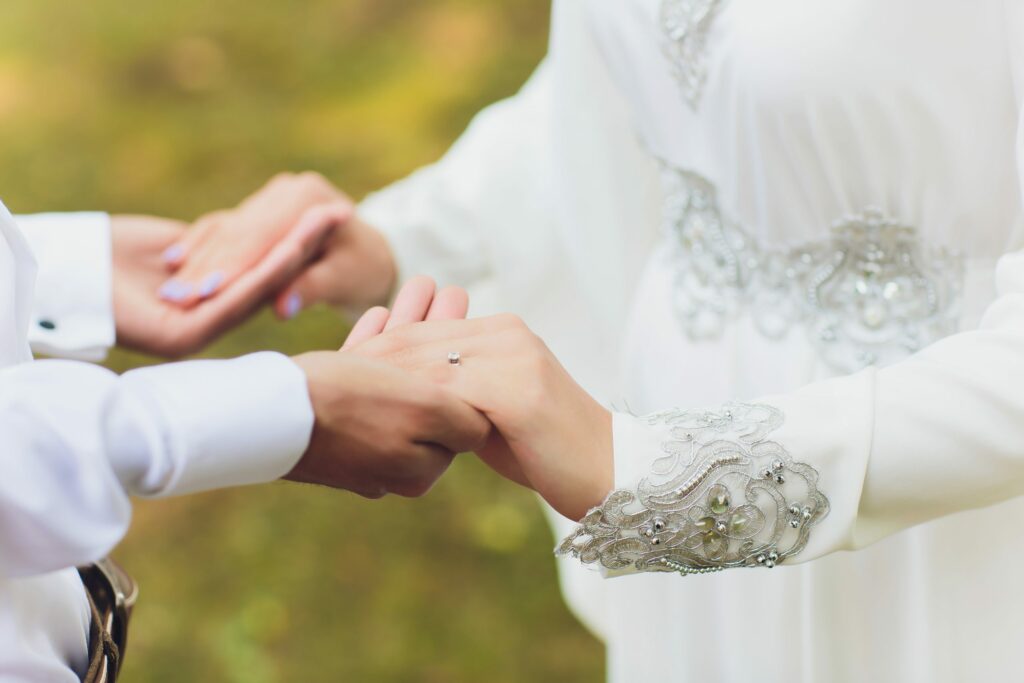
Religious Marriage and how it affects your legal rights. Many people have been married in a religious context but have not been civilly married. This may cause some people to be deprived of rights that they may have believed themselves to have.
Two (or Three) Types Of Spouses
Ontario family law recognizes two types of spouses, on top of which many religious communities deem their members to be spouses although they may not be spouses in either legal sense.
The Family Law Act recognizes “common law spouses”, and “married spouses”. Common law spouses are individuals who are not married but have either cohabitated for a period of at least three years, or who are in a relationship of some permanence and are the parents of a child.
Married spouses are with rare exception, individuals who are married to each other. This almost always means that they have received a provincial marriage license, or that they were married in a jurisdiction in a manner that is recognized as a civil marriage in that jurisdiction. Typically, if one has been religiously married in Ontario, but did not acquire a provincial marriage license, it is unlikely that they are “married spouses”.
Why Is Being A “Spouse” Important?
Whether one is technically a spouse and whether one is a married spouse or common law spouse is highly important when it comes to separation following the breakdown of the relationship from a family law perspective.
Unlike common law spouses and non-spouses, married spouses are automatically entitled to the equalization of family property following separation, as well as spousal support. Married spouses are also entitled to occupy the matrimonial home following separation, even if they are not on title. Common law spouses have no automatic right to occupy a residence, or to a property claim on any property that is not in their own name, or the couple’s names jointly. Common law spouses are however entitled to claim spousal support.
In What Situations Are Religiously Married Spouses That Did Not Receive A Marriage License Also “Married Spouses”
If a couple was religiously married in a jurisdiction wherein there is no legal distinction between a religious and civil marriage, then they are likely to be regarded as married spouses in Ontario.
If a couple was religiously married in Ontario, the question becomes more complicated. Normally this would disqualify a religious marriage as being a legally recognized civil marriage. The exception is a saving provision in Section 31 of the Marriage Act that can justify a court finding that legally non-compliant marriages are to be legally recognized as civil marriages.
To use Section 31, the four following elements must all apply:
- The marriage must have been solemnized in good faith;
- The marriage must have been intended to be in compliance with the Marriage Act;
- Neither party was under a legal disqualification to contract marriage; and
- The parties must have lived together and cohabited as a married couple after solemnization.
If the parties can demonstrate to the court that they intended to be civilly married and at the time of the religious marriage, and that they believed that all that was required to affect that result was the religious marriage, they may be married according to Section 31. Such situations are not simple and the rights that follow are subject to court approval rather than being automatic as they are for most married spouses.
If you are unsure whether you are married and entitled to property rights following the breakdown of your relationship, you should contact a lawyer promptly and protect your rights.
Nussbaum Law is a team of legal professionals who can assist with your family law matter. Speak to one of the firm members and obtain your independent legal advice today!
ANY QUESTIONS?

My daughter is Christian, her fiancee Pakastani Muslim (although non-practising).
She will have a Christian wedding ceremony (license), but his parents also want to have a Muslim Ceremony, a Nikah, with an Imman, I believe, at their home.
Is this Nikah, a legally binding contract? Would there be 2 marriage licences in effect here? Which one rules if there ever was a divorce?
Does the first ceremony that is had take precedent, be the legal wedding license in Ontario, Canada.
Thanks, Rick
Great!!! Thank you for sharing this details. If you need some information about Search Engine Optimization than have a look here Webemail24
Pretty! This was a really wonderful post Thank you for providing these details
What’s up, every time i used to check website posts here in the early hours in thedawn, since i love to find out more and more